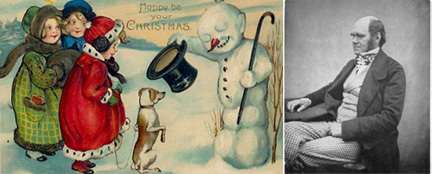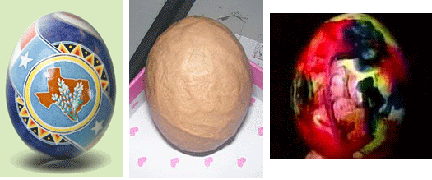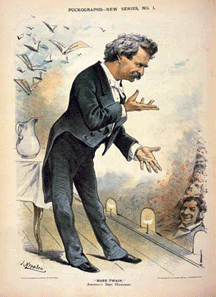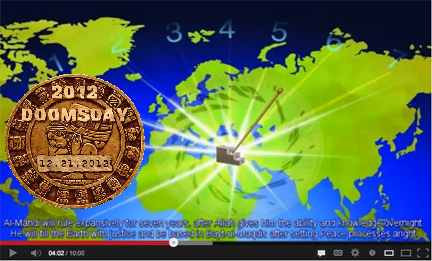
A Christmas message from Charles Darwin
In a New York Times commentary two days ago, Rabbi Jonathan Sacks tackles the consumerist “war on Christmas/Hanukkah†but with a neuro-evolutionary twist traced back to none other than Charles Darwin. He argues that despite the rightwing clamor about the impending destruction of Christmas and all things deemed proper religion, religion is doing quite well “in an age of science†and after “a series of withering attacks, most recently by the new atheists, including Sam Harris, Richard Dawkins and the late Christopher Hitchens.†The proof? Well, “still in Britain three in four people, and in America four in five, declare allegiance to a religious faith.†He might have added that an even higher percentage would work for Islam, and probably Hinduism and Buddhism as well.
For Sacks this adherence to a religious faith “is truly surprising.†Really? It seems that the best explanation for him comes from Darwin, once considered the Great Satan of Scientific Doubt. Here is the dubious (and I believe ultimately “missingâ€) link between what people say in opinion polls about religion and the scientist whose 200th birthday was celebrated only three years ago:
Our biological and cultural makeup constitutes our “adaptive fitness.†Yet religion is the greatest survivor of them all. Superpowers tend to last a century; the great faiths last millenniums.
So “survival of the fittest†must mean that since something as vague as “religious faith†survives in opinion polls, it must be very, very fit. In this case the evidence does not fit very well. Sacks notes that Darwin was “puzzled†by the fact that the ruthless do not always win in the battle for survival. How could altruism possibly result from natural selection? Darwin was puzzled because he had no idea of genetics or DNA, despite his correct notion that inheritance is always unique; thus, his model provided a mechanism that explained why so-called “fixed†species could actually transform and did not in itself explain why. But Sacks misses the point on what allows humans (and no doubt several of our ancestral cousins) to be moral at all: the ability to think morally rather than simply act according to a programmatic code. The seeming altruism of an insect or bird is not the same as altruism among humans, because it is not thought out as humans do. Nor is it the case that altruism demands self-sacrifice; caring for one’s offspring can be as altruistic an act as sacrificing one’s life for a comrade. If a mother or father sacrifices herself or himself to save a child, this is indeed reproductive success as Darwin would define it.
But Darwin is not really the issue here, unless Sacks wishes to analyze Darwin’s own views on religion. In his Autobiography (a great read at any time of year), Darwin clearly rejected the formal Anglican Christianity of his day, but he did not consider himself an atheist. The term “agnostic,†created by his friend and public relations bulldog Thomas Huxley, is a closer fit to what Darwin is suggesting about the transformation of his own faith. He did not reject the idea of some intellectual force setting the whole universe in motion or keeping it together, but he did not see any viable explanation in the religions he knew. Continue reading The Morale of the Moral Animal →









